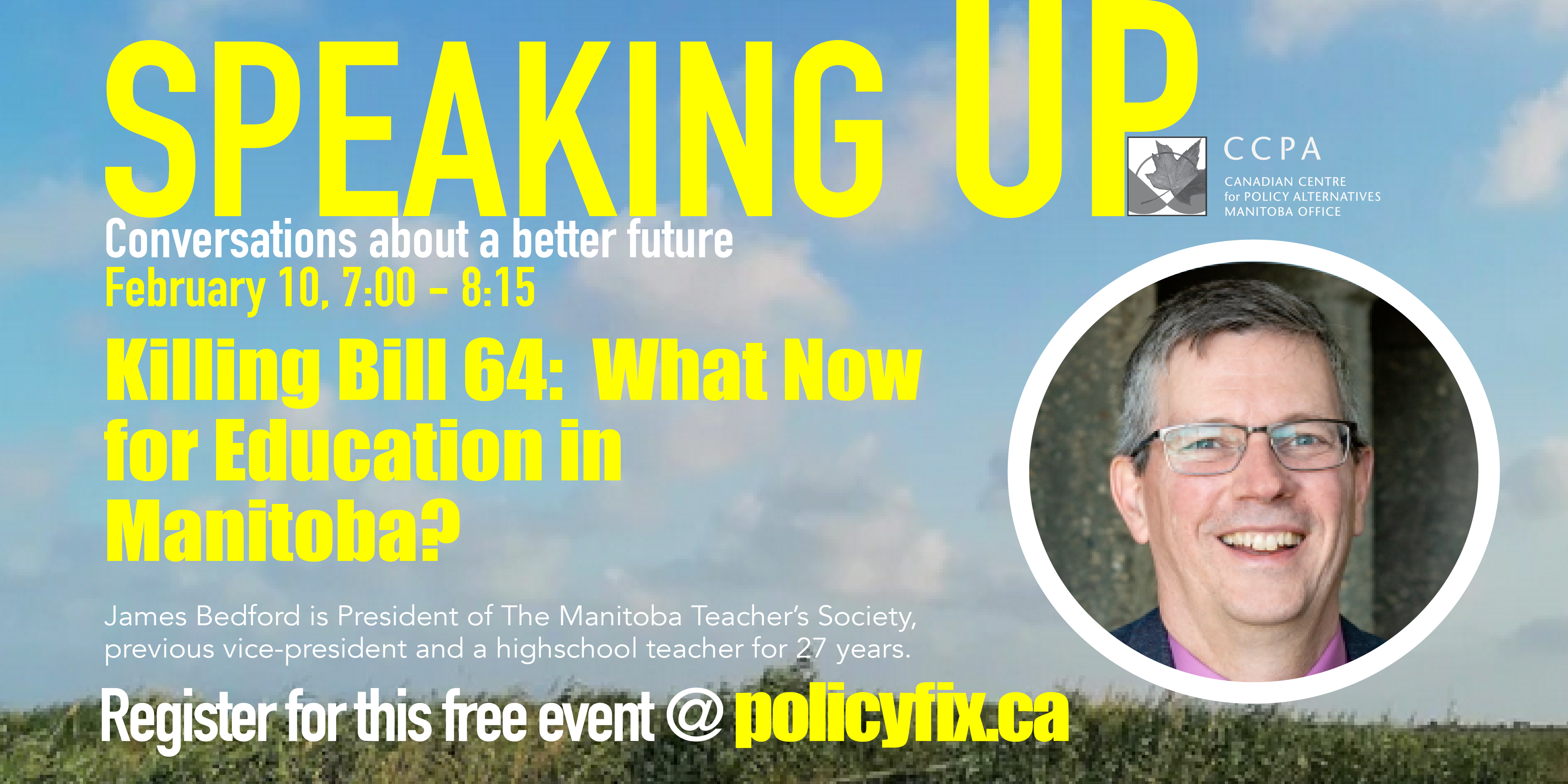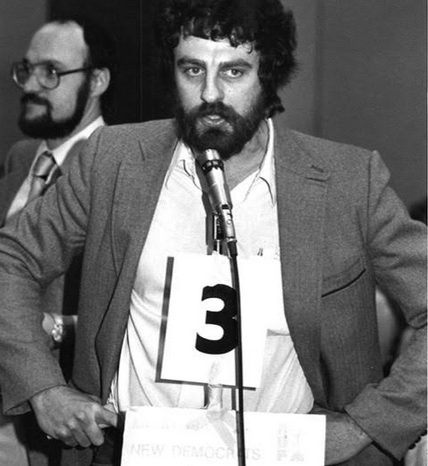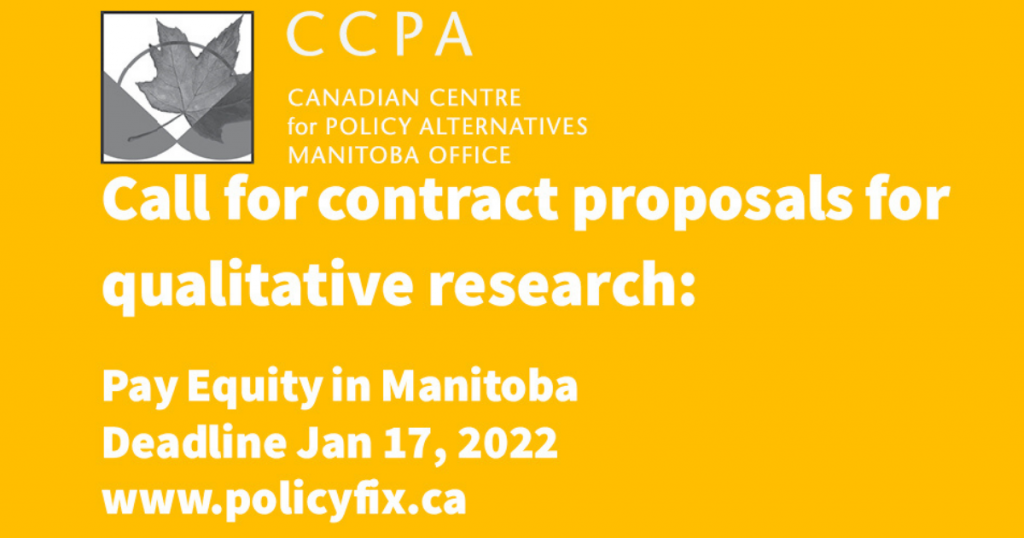
The education landscape has changed somewhat with the withdrawal of Bill 64, yet it is far from clear what the government’s next steps will be.
James will speak about how we can move Manitoba’s public education system from where it is, to where it should be. He will present recommendations from the Manitoba Teachers’ Society which call for tangible change to our public education system which will support positive outcomes for students and their teachers. Funding that is adequate, stable and equitable is foundational to these recommendations.
James Bedford is the President of the Manitoba Teachers’ Society, representing 16,600 public school educators. Prior to that, he was a high school science and math teacher with more than 25 years of experience.
Register here: Killing Bill 64: What Now for Education in Manitoba?

The Canadian Centre for Policy Alternatives – Manitoba office is pleased to announce the appointment of Niall Harney as the Errol Black Chair of Labour Issues. Niall brings a strong blend of quantitative skills and public policy research to this role.
Previously published in the Winnipeg Free Press January 26, 2022

By Jim Silver

By Molly McCracken
By Shauna MacKinnon and Desiree McIvor









Follow us!